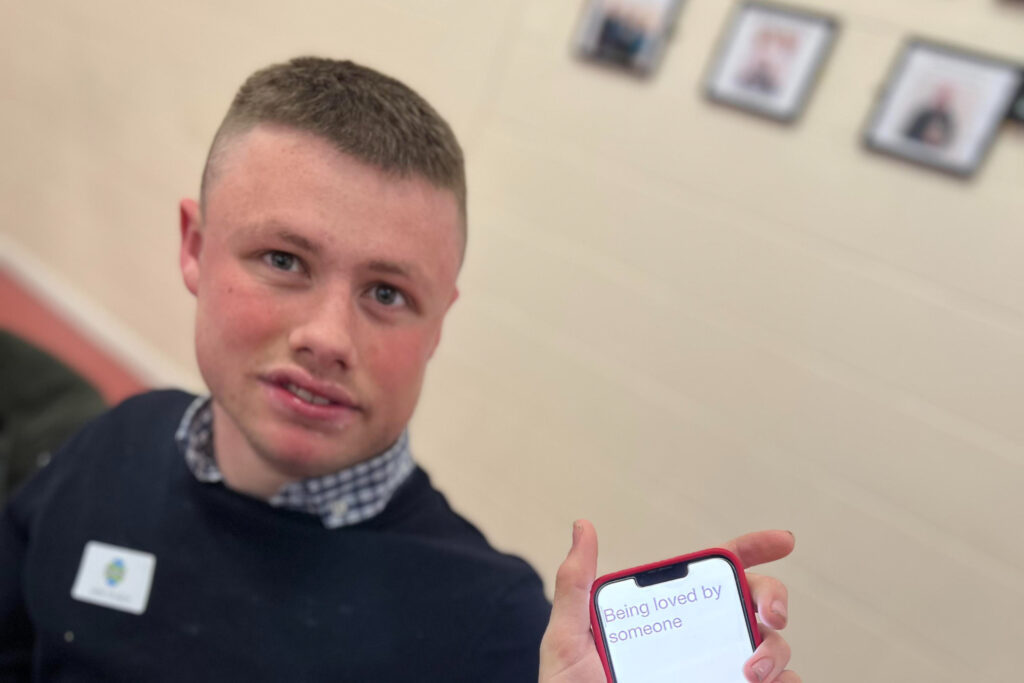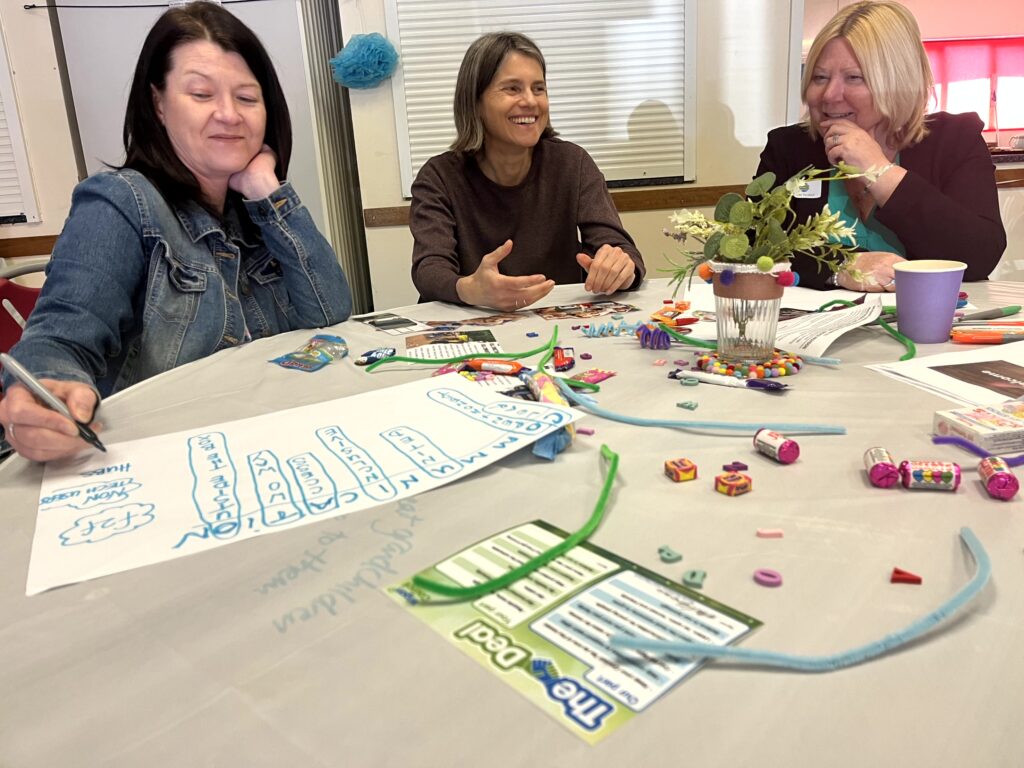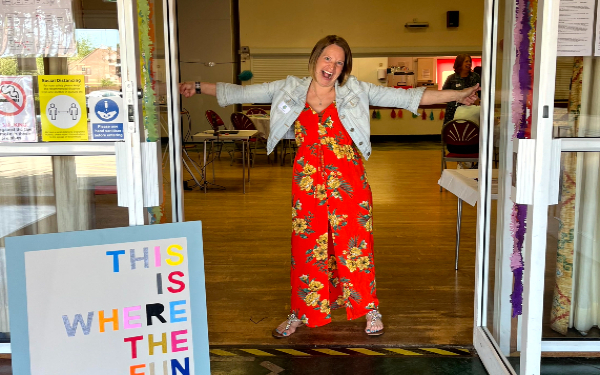The term ‘co-production’ is used a lot in social work practice but how can local authorities authentically imbed it into the services they run?
Wiltshire Council’s principal social worker for adult social care (ASC), Laura Roberts, says the authority has reflected, reset and refocused to ensure disabled people are being understood and really listened to.
Laura says: “We recognise that what is significant for service provision is not always aligned to what disabled people in our communities feel is important to them.”
It surveyed 2,000 disabled people in Wiltshire to help develop a new framework to enhance their lives.
“We firmly believe that disabled people are the experts in their own lives, they are best placed to tell us what matters to them, what’s important to them and what we, as a local authority, need to be able to hear,” says Laura.
“People have shared the importance of being involved and being part of their local communities, they have fed back that living in Wiltshire ultimately has a positive impact on the quality of everyone’s lives.”
Co-production with other organisations
One of the ways adult social workers are underpinning their practice with co-production is with the work they do with Wiltshire Centre for Independent Living (Wilts CIL).
Wilts CIL is a small charity commissioned by Wiltshire Council to support disabled people in the area. It embodies co-production in all its services and also tries to employ as many people with lived experience of disability as possible. It has also helped shape the way social workers carry out Care Act assessments.
Abbie-Jo, a personal assistant (PA) development worker and trainer for Wilts CIL, says: “Instead of standing at the top and things being done to us we’re starting at the bottom and saying to people, what do they need? What do they want to have a good life? And then we feed it back to Wiltshire Council.”
Abbie-Jo helps people with their direct payments and getting them the right type of support. Having cerebral palsy means that she also has a PA and a good grasp of what some disabled people may need.
“It’s about having a say about how they want services to work for them rather than us fitting into a box and having tick boxes we didn’t necessarily fit into,” she says.

A young adult at a visioning event
Pioneering events
Wilts CIL and Wiltshire Council organised several ‘pioneer visioning’ events where disabled people and social care staff came together.
Not only was it an opportunity for people with different needs to meet up and socialise but it also enabled Wiltshire’s social care staff to ‘hang out’ with disabled people in an informal setting.
The events featured ice breakers and other fun activities so people could get to know each other. The house rules for the events were that no lanyards, work calls or laptops were allowed, promoting the idea of equality and being present in the moment.
“These events are really genius because it shows that we’re all on the same side and fighting for the same thing,” says Abbie-Jo. “It’s a really lovely opportunity to put them [social care staff] in the same room as people like us. They really appreciated that for those two hours we were all equal and on the same level.”

Wiltshire social care staff at a visioning event
The importance of co-production
Caroline, a social worker in the locality ongoing support team in ASC, really enjoyed attending some of the visioning events. She says a lot of services have closed since the pandemic and working closely with Wilts CIL has helped her with the adults she supports. She explains what co-production looks like to her:
“It’s about listening to people, that’s probably the key thing. Years ago, it was very much that we were providing a service and trying to make it fit the person, now things have changed over the years and now we’re looking at shaping services for what people want, which has got to be more meaningful and more important.
“I think when you’re actually asking people who have experience, because of a disability of some kind, actually asking them what they want and what they need in their local community, that’s really powerful. I really liked the co-production event because of that.”
She shares a story of an 18-year-old man with cerebral palsy who wants to live a more independent life now that he is a young adult, and not be so reliant on his mother.
“He wants a PA so that he can access activities safely but without his mum tagging along, just like any other 18 or 19-year-old would want. You get to know a little bit but Wilts CIL has an ear to the ground.
“After the co-production event, I just thought I’m going to tap into them and use them as a contact to try and find out what else is out there.”
In the 23 years I think we’ve tinkered with co-production but this is the first time I’ve actually seen it in action in such a proactive and positive way.
Peter, a social worker for 23 years and service manager for the Living Well service, which looks after many different teams in ASC, is also keen to make sure co-production guides all the practitioners he manages.
He says: “Our priority within all assessments now is around ensuring that we hear the voice of the customer; really understand what’s working for them and what’s not working for them.
“Our work with individuals is really key. We need to engage and develop that relationship where we are equal to the individual to understand what’s important to them, what a good life looks like and how we can work with them to achieve that.
“In the 23 years I think we’ve tinkered with co-production but this is the first time I’ve actually seen it in action in such a proactive and positive way.
“Co-production now is one of our golden threads really and I think there is the need to imbed that into any development or changes that take place. We want to work with our communities and individuals to inform our services that we deliver.”
If you want to find out more about how co-production is implemented you can attend the seminar ‘Co-creating our Wiltshire vision’ at Community Care Live 2023.
Are you interested in a career a Wiltshire Council? Check out the latest vacancies or the Wiltshire Council employer profile.
Find out more about Wiltshire here.




 Facebook
Facebook X
X LinkedIn
LinkedIn Instagram
Instagram